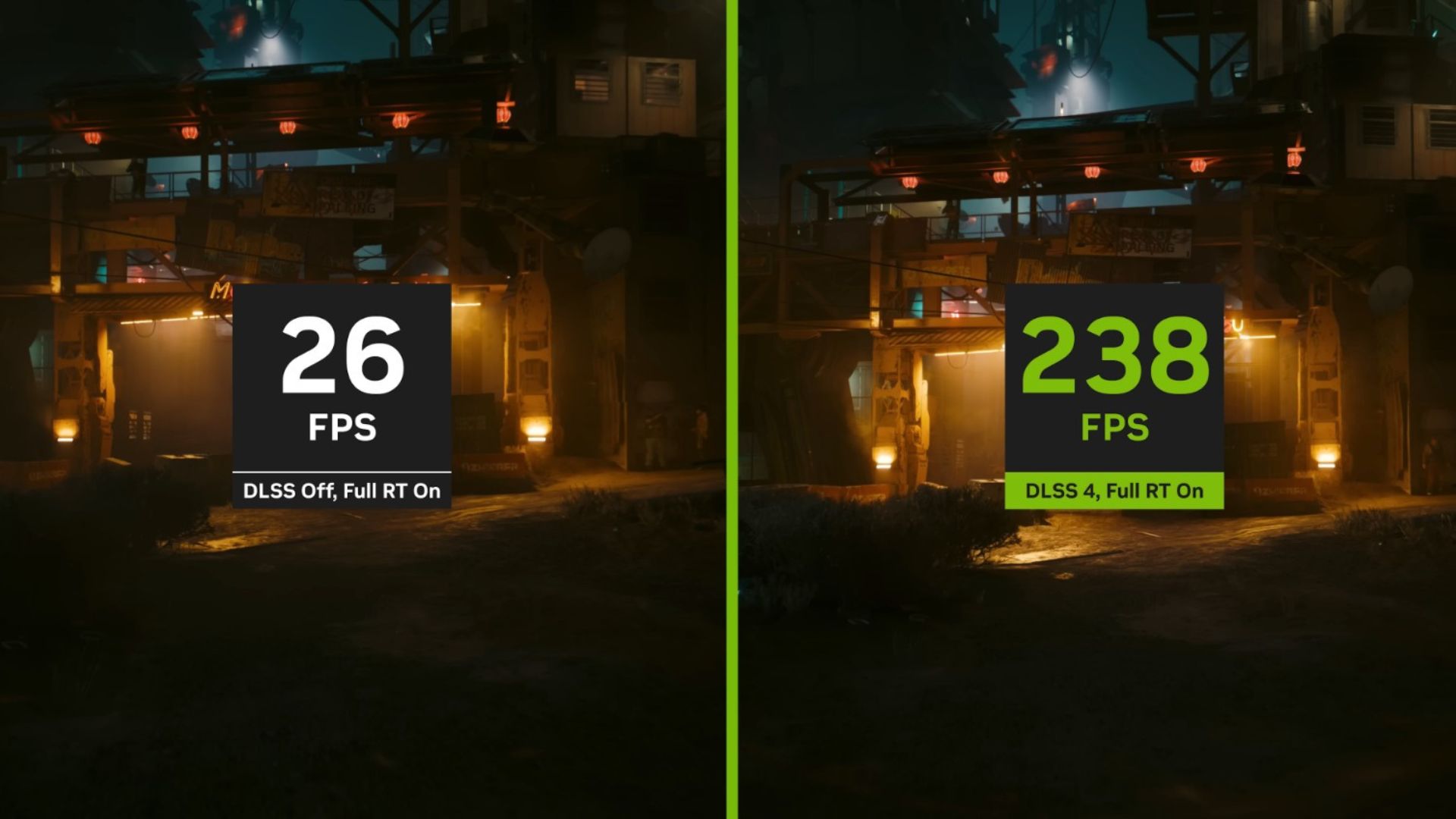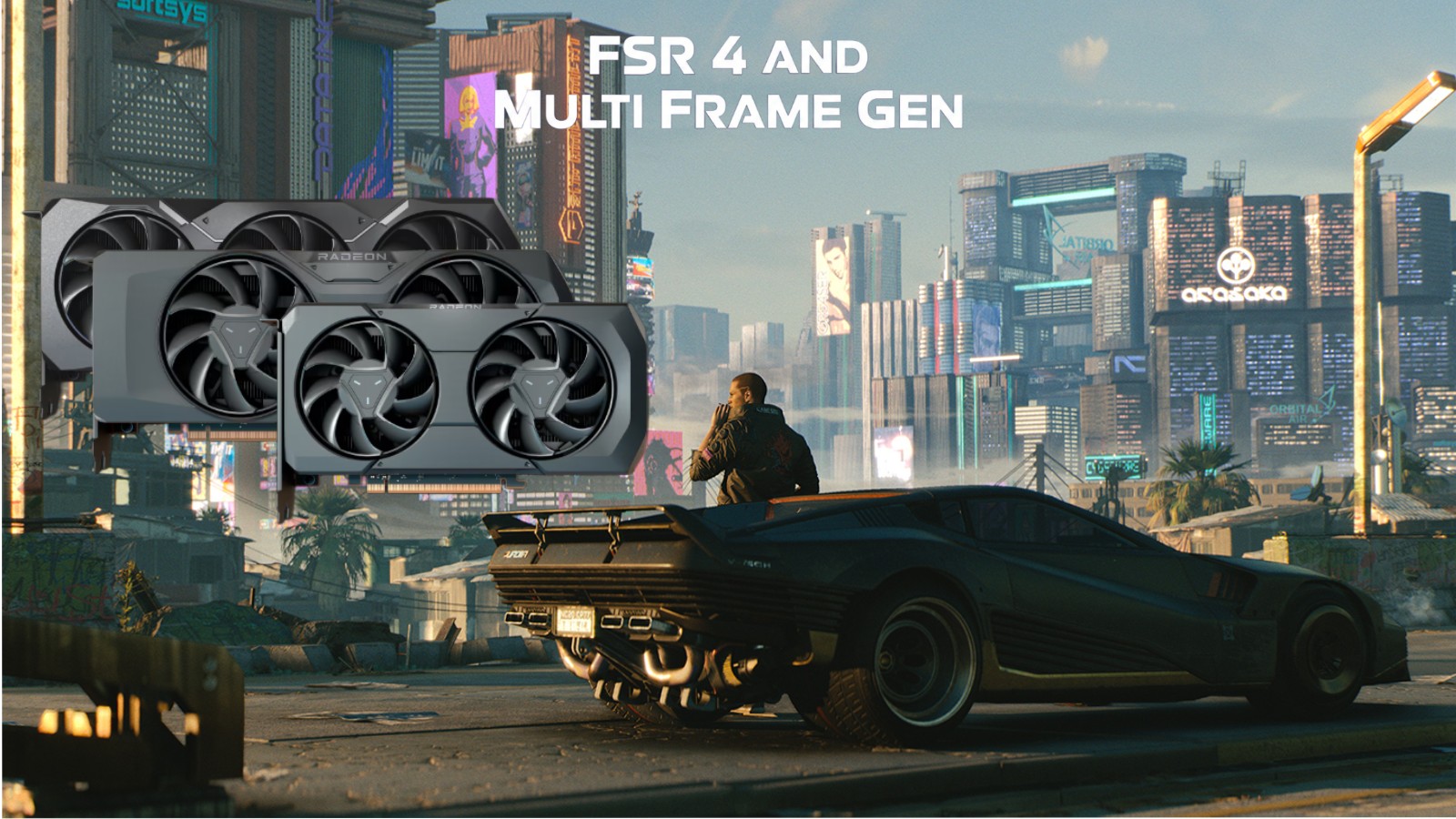- Nvidia says DLSS frame generation is now using a completely different AI-based solution.
- This means the possibility of this feature heading to the older RTX 30 GPUs is not ruled out.
- Following the RTX 50 series launch, the company will consider optimizations for older hardware.
Nvidia has become famous for its software features over the last few generations. DLSS alone has been a game-changer for the PC market, with extra features and rapid improvements like frame generation making the technology all the more appealing.
DLSS 3 was limited to the GeForce RTX 40 series when it debuted last year, but Nvidia was quick to acknowledge the possibility of frame generation heading to older hardware. The company has once again suggested that this can happen.
Why it matters: The RTX 30 series continues to be one of Nvidia’s most popular generations since it provides a nice balance between price and performance.
Speaking to Digital Foundry, Bryan Catanzaro, the VP of Applied Deep Learning Research, explained how Nvidia has pushed frame generation forward since its inception a few years ago.
He pointed out that frame generation previously relied on Optical Flow hardware accelerators. These, of course, were much upgraded for graphics cards in the RTX 40 generation, making it challenging to bring the technology to older generations.
As per Bryan Catanzaro, this implementation has now been replaced with a fully AI-based solution in DLSS 4. When asked about frame generation on RTX 30 series GPUs, the VP certainly acknowledged the possibilities.
He noted that it would come down to optimization and engineering at the end of the day, giving PC gamers some hope to cling to.
I think this is primarily a question of optimization and also engineering and then the ultimate user experience. We’ll see what we’re able to squeeze out of older hardware.
-Bryan Catanzaro
It should be noted that the new AI-based solution still relies on Tensor Cores, and both the RTX 40 and 50 series GPUs offer significant upgrades in this department. This could make it difficult to bring frame generation to the older generations, but Nvidia is still not denying the possibilities outright.

Elsewhere, the upcoming RTX 50 graphics cards offer multi-frame generation, the main selling point of the new products. This technology is set to make up for the somewhat disappointing boost to rasterization, setting the RTX 50 series up for major success later this month.
What are your thoughts on this statement? Do you think frame generation will make its way to older GPUs soon? Let’s discuss this in the comments below and on the Tech4Gamers Forums.
Thank you! Please share your positive feedback. 🔋
How could we improve this post? Please Help us. 😔
[Senior News Reporter]
Avinash is currently pursuing a Business degree in Australia. For more than 5 years, he has been working as a gaming journalist, utilizing his writing skills and love for gaming to report on the latest updates in the industry. Avinash loves to play action games like Devil May Cry and has also been mentioned on highly regarded websites, such as IGN, GamesRadar, GameRant, Dualshockers, CBR, and Gamespot.




